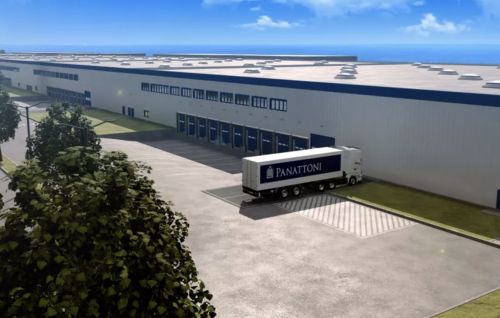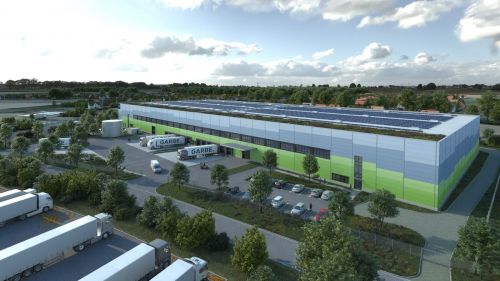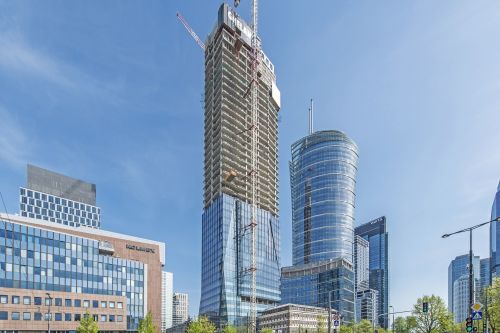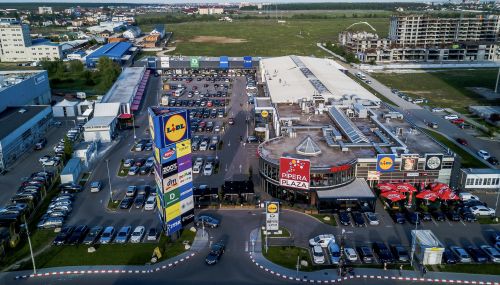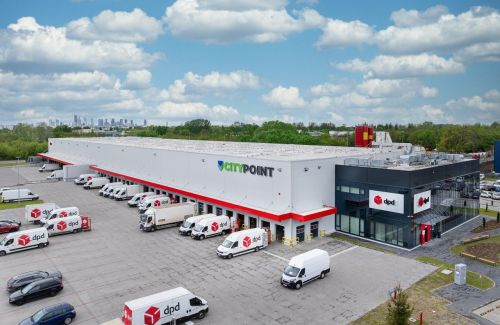Garage style in the office
Feature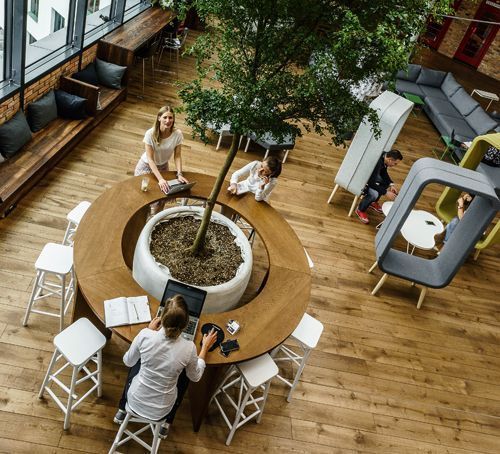
Ask those in the know, and the usual view is that only 10–20 start-ups survive out of every hundred. So it would seem to be quite a risky business. But there are ways of increasing your chances of survival. You need investors and accelerators – to serve as a kind of midwife in the birth of your new enterprise. The small scale of start-up companies and the rather high risk of failure have, however, tended to deter real estate tycoons from entering this environment. “Start-ups usually launch their operations in smaller buildings that are of little interest for large developers or agents. We consider them to be companies with potential, but when they grow they no longer qualify as ‘start-ups’ and then become part of a particular industry. Start-ups have quite a specific mode of operation – in the form of project groups. This means that they need office space for just one, two or maybe three years,” says Mikołaj Sznajder, the senior associate director of advisory and transaction services at CBRE in Warsaw. “However, developers are beginning to take a closer look at this environment and are taking the initiative. This could help start-ups familiarise themselves with large office buildings. But this is not happening on the same scale as in the US, where start-ups now account for a considerable share of the demand for office space,” he adds.
Where there’s potential, there are challenges
The Polish market is still some way behind those of the US, Israel and Germany, where Berlin is the leader of the pack. “According to 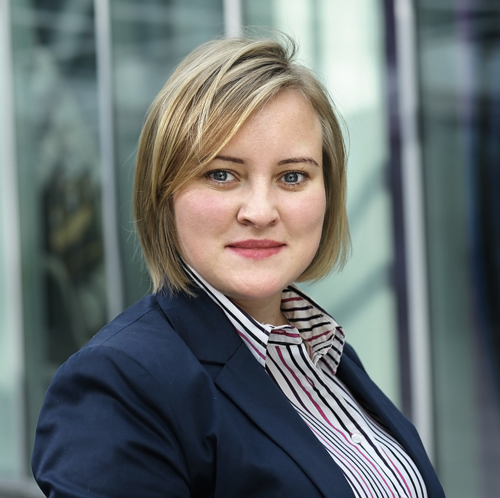 Startup Poland, there are app. 2,700 companies that fall under the definition of a start-up registered in Poland,” points out Olga Drela, a senior analyst in the consultancy and market research department at Colliers International. “It is estimated that 27 pct are located in Warsaw. Assuming that they employ an average of ten people, this means the potential demand from the start-up segment is almost 100,000 sqm of office space,” she explains. However, this potential is not enough on its own for the real estate sector to surge towards this new group of tenants as a sure source of profit. “Our analysis of the data does not show a direct correlation between the increasing reputation of Warsaw, the number of start-ups and modern office space. A typical tenant of an office building must fulfil certain formal requirements in order to sign a several-year lease with a developer or investment fund. The basic requirements are: a history of operations and a solvency guarantee, which is something young companies in their active growth phase are not able to provide. So signing an agreement for five years carries a great deal of risk – since each year of operations will be a ‘to be or not to be’ situation for a young company. Due to this a building owner might require an increased surety from such a potential tenant,” emphasises Olga Drela. She also points out that adjusting the space for the leasing possibilities of young entrepreneurs can be tricky. Start-ups tend to go for small modules with an expansion option or a short-term lease involving access to modern ICT infrastructure. So they generally choose more cost efficient solutions and work in apartments, tenement blocks, older types of office buildings or co-working areas – or they lease space in serviced offices.
Startup Poland, there are app. 2,700 companies that fall under the definition of a start-up registered in Poland,” points out Olga Drela, a senior analyst in the consultancy and market research department at Colliers International. “It is estimated that 27 pct are located in Warsaw. Assuming that they employ an average of ten people, this means the potential demand from the start-up segment is almost 100,000 sqm of office space,” she explains. However, this potential is not enough on its own for the real estate sector to surge towards this new group of tenants as a sure source of profit. “Our analysis of the data does not show a direct correlation between the increasing reputation of Warsaw, the number of start-ups and modern office space. A typical tenant of an office building must fulfil certain formal requirements in order to sign a several-year lease with a developer or investment fund. The basic requirements are: a history of operations and a solvency guarantee, which is something young companies in their active growth phase are not able to provide. So signing an agreement for five years carries a great deal of risk – since each year of operations will be a ‘to be or not to be’ situation for a young company. Due to this a building owner might require an increased surety from such a potential tenant,” emphasises Olga Drela. She also points out that adjusting the space for the leasing possibilities of young entrepreneurs can be tricky. Start-ups tend to go for small modules with an expansion option or a short-term lease involving access to modern ICT infrastructure. So they generally choose more cost efficient solutions and work in apartments, tenement blocks, older types of office buildings or co-working areas – or they lease space in serviced offices.
Taking a bite is possible
Nevertheless, the vibrant start-up environment is too much of a tasty morsel to disregard.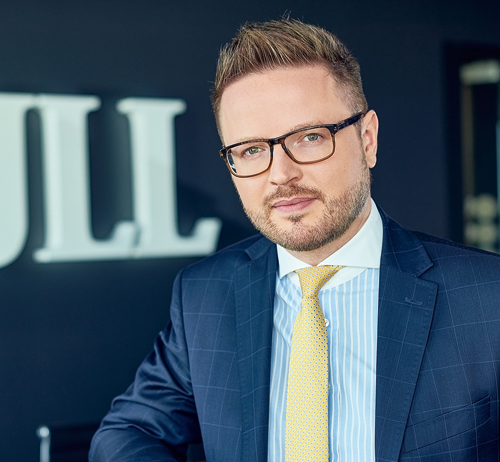 “For some time we have seen that companies operating on the commercial real estate market – including developers – have been starting to spot the potential of start-ups and companies that support their operations,” says Mateusz Polkowski, the director of the market research and consultancy department at JLL. Start-ups began to be mentioned more often in the context of the real estate market just a few years back, when the decision was made in 2014 to open a Google Campus in Warsaw. A year later the third Google Campus in the world opened in Centrum Praskie Koneser. Google campuses are places where entrepreneurs can learn, meet other entrepreneurs and develop their companies. At the same time they can take advantage of the support of mentors and participate in courses organised by local start-up communities, experienced entrepreneurs and Google staff. As part of the global ‘Google for Entrepreneurs’ programme, which is jointly run by similar centres in London, Tel Aviv, Seoul, Madrid and São Paulo, the campus in Warsaw provides entrepreneurs and start-ups with common work areas and spaces for organising special events.
“For some time we have seen that companies operating on the commercial real estate market – including developers – have been starting to spot the potential of start-ups and companies that support their operations,” says Mateusz Polkowski, the director of the market research and consultancy department at JLL. Start-ups began to be mentioned more often in the context of the real estate market just a few years back, when the decision was made in 2014 to open a Google Campus in Warsaw. A year later the third Google Campus in the world opened in Centrum Praskie Koneser. Google campuses are places where entrepreneurs can learn, meet other entrepreneurs and develop their companies. At the same time they can take advantage of the support of mentors and participate in courses organised by local start-up communities, experienced entrepreneurs and Google staff. As part of the global ‘Google for Entrepreneurs’ programme, which is jointly run by similar centres in London, Tel Aviv, Seoul, Madrid and São Paulo, the campus in Warsaw provides entrepreneurs and start-ups with common work areas and spaces for organising special events.
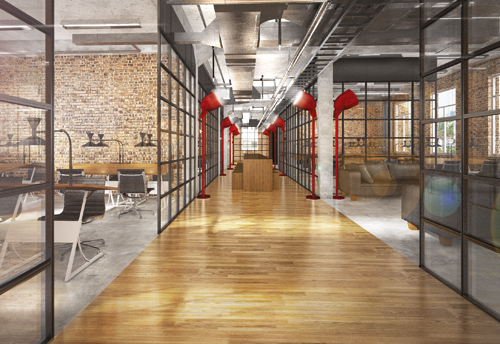
While the location for the Google campus was being chosen, White Star Invest was starting its initial work on the renovation of an old lighting factory, also in Praga, at ul. Grochowska 306/308, and transforming it into the Praga 306 project. Even though this was not exclusively focused on start-ups, it was chosen by a number of companies operating in the new technology sector. “We were surprised by the demand for our offices. Our first building is fully leased and more than half of the renovated section has been rented. Some characteristic details of the lease have to be explained to the smaller companies, but we have some experience in this respect, so it is not a problem from our point of view and we are striving to create an institutional product,” explains Bartosz Szewczyk of White Star Invest. This approach would seem to be working, since Microsoft, EY and Senfino have announced the launch of the Startberry initiative on ul. Grochowska. This enterprise aims to provide technical and business support for developing start-up projects. Along with the workspace, young companies operating as part of Startberry can avail themselves of Microsoft’s latest technological and cloud based services, the consultancy offered by EY and mentoring, such as that provided by Senfino, which is experienced in this field. Startberry is to function as a knowledge exchange centre and a meeting place for start-ups, IT developers and communities of entrpreneurs.
On the developers’ radar
Commercial developers are also trying their hand at working 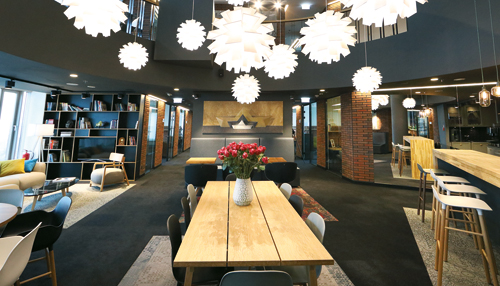 with start-ups and small companies by providing work environments to suit them. Adgar was the first of these, launching The Brain Embassy in the Adgar Park West building in Warsaw. This is a co-working area designed for both companies and freelancers. “The Brain Embassy is our latest project to introduce global trends onto our market and move the co-working concept to another level,” declared Eyal Litwin, the CEO of Adgar Poland, at its opening. Eventually the area of The Brain Embassy within the complex in Warsaw’s Ochota district will come to 3,000 sqm. And Adgar Poland is not planning to stop there. By 2019 it is planning to increase the amount of this kind of space in its Polish portfolio to 20,000 sqm. Meanwhile, Skanska has decided to engage in co-working on an even greater scale, as it invests in its Business Link network. This is a co-working initiative of the Academic Business Incubators foundation, which is already something of a veteran on this market. Over the next three years, Skanska will be investing PLN 40 mln in the development of twelve specially designed office locations with a combined area of app. 50,000 sqm. The first Business Link offices in Skanska’s properties are to open by the end of this year, each with co-working areas of 4,000–5,000 sqm. “This is a completely new product, which is not just about leasing attractive space to entrepreneurs. Business Link is about much more: services, additional offers for all community members and a huge platform for cooperation and the exchange of business experiences,” claims Jarosław Bator, Skanska’s business development director. The Business Link chain is to be set up in Skanska’s buildings in Poland, the Czech Republic, Romania and Hungary.
with start-ups and small companies by providing work environments to suit them. Adgar was the first of these, launching The Brain Embassy in the Adgar Park West building in Warsaw. This is a co-working area designed for both companies and freelancers. “The Brain Embassy is our latest project to introduce global trends onto our market and move the co-working concept to another level,” declared Eyal Litwin, the CEO of Adgar Poland, at its opening. Eventually the area of The Brain Embassy within the complex in Warsaw’s Ochota district will come to 3,000 sqm. And Adgar Poland is not planning to stop there. By 2019 it is planning to increase the amount of this kind of space in its Polish portfolio to 20,000 sqm. Meanwhile, Skanska has decided to engage in co-working on an even greater scale, as it invests in its Business Link network. This is a co-working initiative of the Academic Business Incubators foundation, which is already something of a veteran on this market. Over the next three years, Skanska will be investing PLN 40 mln in the development of twelve specially designed office locations with a combined area of app. 50,000 sqm. The first Business Link offices in Skanska’s properties are to open by the end of this year, each with co-working areas of 4,000–5,000 sqm. “This is a completely new product, which is not just about leasing attractive space to entrepreneurs. Business Link is about much more: services, additional offers for all community members and a huge platform for cooperation and the exchange of business experiences,” claims Jarosław Bator, Skanska’s business development director. The Business Link chain is to be set up in Skanska’s buildings in Poland, the Czech Republic, Romania and Hungary.
Added value
All of this demonstrates that start-ups’ needs are much more diverse and ordinary co-working on its own is not enough. “Start-ups could benefit from networking with employees of corporations who have substantial experience and a global reach and could use the creativity and innovativeness of young companies,” suggests Olga Drela. This is the direction Ghelamco is going in, with the opening of The Heart Warsaw cooperation centre for start-ups and corporations on the 38th floor of the Warsaw Spire. “Our offer is a response to the needs of innovative tech companies that have grown rapidly to the point where they now regard large corporations as their clients and partners. We help to facilitate these contacts, inviting scale-ups, corporations and investors from Poland and across Europe. We cooperate with similar platforms, such as Level39 in the UK and The Floor in Israel,” Tomasz Rudolf, the CEO of D-Raft, who is responsible for the management of space in The Heart Warsaw as well as the project’s execution, informed us at the opening. The new area in the office building will provide corporations with space for their innovation departments and project teams working together on new solutions with start-ups. Representatives of venture capital funds and selected start-ups will work in a shared area. Three theme programmes related to the fields of FinTech, omnichannel sales and the internet of things/smart cities are to be launched this year. Twenty corporations that have decided to implement the solutions developed by start-ups will be involved in the project. The Heart Warsaw wants to support over 100 promising scale-ups in terms of securing contracts with large companies. The workplace is also designed to stimulate international cooperation – half of the corporations, investment funds and start-ups operating on it will come from abroad. Platforms such as this will provide developers with other benefits than just the monthly rent. New companies can be a source of innovation that could subsequently be implemented and monetised in the real estate business. This is the case with The Heart Warsaw, where projects for smart cities and smart offices are to be developed that could eventually be used by the Belgian developer for its next Warsaw project – The Warsaw Hub. The Heart Warsaw will also eventually move its headquarters to the building. It will also include MeetDistrict – a co-working concept employed in Ghelamco’s Belgian projects.
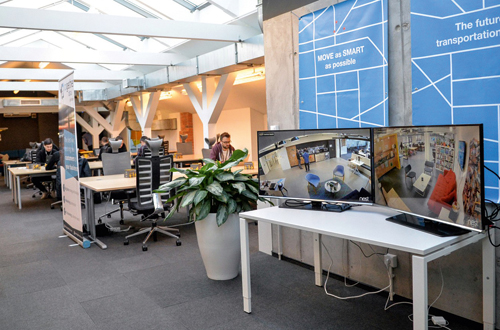
“Developers and the funds that own prestigious buildings are eager to fill their empty floors up with young entrepreneurs. The trend for creating start-up areas or business accelerators by office project investors is rapidly picking up steam. Developers are now attempting to outdo each other in finding interesting partners and making their offers attractive. The development of such areas fulfils their marketing requirements, it helps to position the project, to develop the leasing strategy and it extends the tenant mix,” explains Olga Drela, who also believes that over the long term such tenants could expand dramatically, thus boosting the demand for office space each year. “Short term leases of small offices and co-working areas are becoming more available all the time in the largest office markets in Poland. There are now more than thirty of these in Warsaw,” adds Mateusz Polkowski. The Polish market is being closely monitored by international players. One of these – the Mindspace international platform – will be opening its co-working space on app. 3,000 sqm in Hala Koszyki in Warsaw. More information about the plans of this business, which operates in Tel Aviv, Berlin, Hamburg and Munich, can be found in the interview that follows.
Selected co-working and start-up supporting areas in Warsaw
- The Brain Embassy manager by Adgar Poland (1,600 sqm)
- Business Link AIP, the National Stadium (5,000 sqm)
- Business Link AIP, Zebra Tower (app. 6,000 sqm)
- Google Campus, Koneser, Praga-Północ district (1,600 sqm)
- The Heart Warsaw, Warsaw Spire (app. 1,700 sqm)
- Startberry, Praga-Południe district 306 (app. 650 sqm)
- Centrum Przedsiębiorczości Smolna (1,200 sqm)
- Centrum Kreatywności Targowa (3,000 sqm)












































